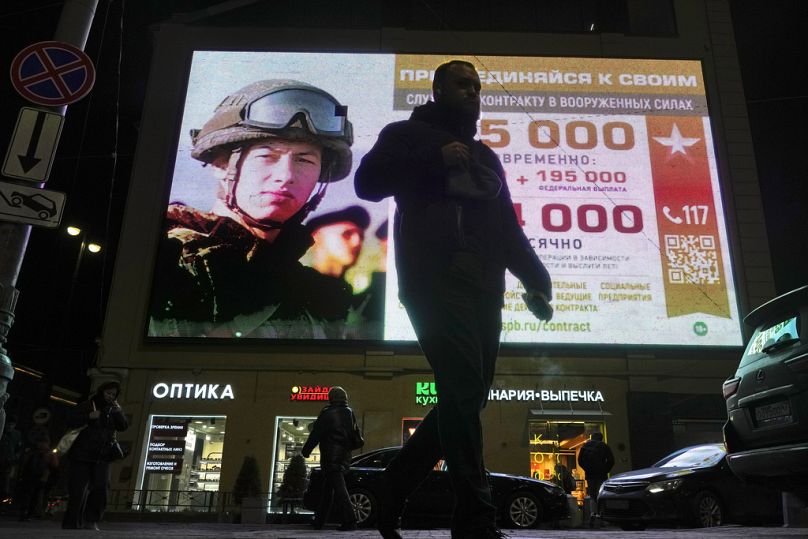Leave, and if you haven’t yet, make plans to do so. In Russia, all of the previously eroded freedoms are now completely gone, Aleksandar Đokić writes.
During the Stalinist era, when millions suffered under an arbitrary, totalitarian rule, there were only two useful bits of advice one had to give to those with ties to the Soviet empire.
One, if you’ve managed to escape the clutches of the Soviet communists, never return. Two, if you’re still trapped there, find a way to make a break for it.
The machinery of repression, put in place by Vladimir Lenin and greatly expanded by his unsolicited successor Joseph Stalin, protected nobody from its potential grasp.
Its totalitarian nature was embodied in an overbearing state apparatus that wanted to meddle in almost every aspect of human existence. In other words, it attempted to nationalise even the private aspects of life.
There was no protection of the law and no such thing as independent institutions. Everything was just a paper-mâché scenery for the state-organised terror campaign which did not come to a halt even during World War II.
Top-down prescribed social behaviour, which would all you an individual citizen to remain out of danger, didn't exist during this period, either.
One could be a member of the working class or a peasant, without a clear interest in politics, without being involved in any kind of organised struggle against the regime, and still end up in the Gulag.
One could be atheist, agnostic, Christian, Muslim, Jewish, or Buddhist, and still find themselves imprisoned.
One could even be a fervent communist — a card-carrying member of the Party ever since the 1917 October Revolution and the subsequent Civil War — and still lose all his privileges and status.
Echoes of traumas past
Today, if you were to befriend a person living in Russia or of Russian roots, most of them would have stories of repressed family members they could share with you — illustrating the sheer scale of this unique, ever-present and widespread transgenerational social trauma.
Just a year and a half ago, it seemed that this kind of nightmare would not take hold in Russia again, despite the fact that the oppressive tendencies of the Kremlin never truly went away.
The root of this belief was found in the fact that even the communist leaders who came after Stalin did not attempt to emulate the totalitarianism of his era. A new one-sided social contract doled out from the top gave way to the gulag after his death: stay out of politics and politics won’t bother you.
While no state official asked the citizens how free the society they wanted to live in should be, it was certainly a relief compared to the previous system of sheer terror. In some ways, it signified a type of progress, despite the Soviet Union and, later, Russia being light years away from a full-fledged democracy.
What has Putin done to his own country?
Many Russia watchers believed the same type of social contract was set in place in the Putin era prior to February 2022.
With Putin, however, there was never any pretense of a social contract to speak of. It would be more fair to call it a dictate, stipulating unwritten desirable social norms or what the state wanted to see from its citizens.
Putin's arrival at the top of Russian politics created a mirage of a free market — as it would later become painfully clear, concepts are seldom really fully implemented in Russia — some free press, a bit of free thought and even free elections, albeit only locally.
Ambivalence towards dictates is no surprise in modern Russian society. The last time the Russian nation actually chose sides on a massive scale was when the central provinces picked the Bolsheviks over the Whites in a civil war waged some hundred years ago.
Back then, the biggest part of the Russian nation — other nations and ethnic groups of the empire were unwillingly caught in the whirlwind of war and destruction — opted for what they were promised by Lenin: bread, land and peace.
The Bolsheviks didn’t deliver on any of these promises — there were recurring famines that lasted for decades, the land was collectivised, and the rule of terror turned into an eternal war against the population.
Nonetheless, the Russian nation still believed it had a partial contract with the state — one of justice and equality against feudal autocracy — even though the contract was never completely fulfilled by the Kremlin.
Stalin's spectre haunting today's Russia?
In all instances that followed Lenin's rule, the Russian nation was further made to accept a fait accompli.
And for the average person, given the history of state-organised violence and repression that marked Russia’s history through many of its iterations, Putin’s dictate didn’t seem all that bad altogether.
Whether we go by the maxim “power tends to corrupt, absolute power corrupts absolutely” and conclude that Putin and his confidants changed somewhere along the way, or if we pick the hypothesis of the “strategic plan” — the great conflict was always in Putin’s sights, he simply needed decades to prepare for it — the fact remains that the pre-2022 Russia and the one we have today are fundamentally different in nature.
Putin's Russia prior to the full-scale invasion of Ukraine was authoritarian and more so as the years went by. The Russia of today, however, is on the totalitarian path.
The level and various methods and ways of repression cannot be compared to Stalin’s, but their arbitrary nature is once again haunting the citizens of Russia.
Leave or make plans to do so
The guide about how to survive under the later stages of Putinism would be identical to the one explaining how to make it under Stalin: leave, and if you haven’t yet, make plans to do so. In Russia, all of the previously eroded freedoms are now completely gone anyway.
Kirill Martynov, the editor-in-chief of the Novaya Gazeta Europe, summed up the current state of Russian political system in one sentence in his comment on the upcoming presidential elections: “Anyone who suggests that the opposition should unite and nominate their own candidate, must keep in mind that such a person is actually being called upon to sacrifice himself.”
Today, even those with no political ties to any opposition group can still be charged for a random comment left online years ago — the censorship laws in Russia are retroactive.
Giving up on any kind of individual social initiative is not enough to not be indicted for treason, “discrediting the army” or being a supporter of “Nazism”.
Protest, even in its smallest or banal forms, can get you sent to a remote penitentiary, where you'd be forced to serve your time in inhumane conditions together with the worst criminals in the country.
A suitcase and a ticket out are still a much more appealing option.
Aleksandar Đokić is a Serbian political scientist and analyst with bylines in Novaya Gazeta. Formerly, he was a lecturer at RUDN University in Moscow.
At Euronews, we believe all views matter. Contact us at view@euronews.com to send pitches or submissions and be part of the conversation.














